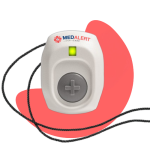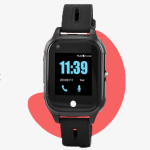
Medical alert devices, such as MedAlert, play a crucial role in helping seniors live independently and safely. Whether it’s an in-home medical alert system, a medical alert watch, or a GPS medical alert, these devices provide instant emergency assistance, fall detection, and tracking features. A common question among seniors and their families is whether these life-saving devices are covered by insurance. Understanding how different insurance plans, including Medicare, Medicaid, and private insurers, handle coverage for MedAlert devices is essential for making an informed decision.
Does Insurance Cover MedAlert Devices?
Insurance coverage for MedAlert devices depends on the type of insurance plan a senior has.
Medicare Coverage
Original Medicare (Parts A & B) does not typically cover medical alert systems because they are considered convenience items rather than medically necessary devices. However, some Medicare Advantage (Part C) plans may offer coverage for medical alert devices as part of their expanded benefits. This varies by provider, so seniors should check with their insurance company.
Medicaid Coverage
Medicaid programs are state-specific, meaning coverage for in-home medical alert systems and GPS medical alert devices varies by state. Some states offer Home and Community-Based Services (HCBS) waivers, which may include medical alert systems as part of senior care benefits.
Private Insurance & Long-Term Care Plans
Some private health insurance plans or long-term care insurance policies may reimburse the cost of a medical alert watch or other alert devices. Seniors should contact their insurance provider to determine if their plan includes coverage for MedAlert devices.
Veterans’ Benefits
Veterans may be eligible for a free or discounted MedAlert system through the Veterans Health Administration (VHA) if it is deemed medically necessary.
For seniors looking for insurance-covered medical alert devices, it’s best to check with their provider and explore alternative funding options if needed.
Types of MedAlert Devices & Their Benefits
While insurance coverage varies, investing in a MedAlert device provides priceless protection for seniors. Below, we break down the different types of MedAlert devices, their features, and why they are essential for senior safety.
MedAlert In-Home Medical Alert Systems
Seniors who spend most of their time at home need a reliable in-home medical alert system to ensure they can get immediate help during emergencies. These systems come with an emergency button, allowing seniors to connect with responders instantly. They also include two-way communication, 24/7 monitoring, and water-resistant wearable buttons that can be worn as a necklace or wristband.
Who Should Use It?
Seniors who primarily stay at home and need a simple, easy-to-use system for emergencies.
Insurance Coverage Possibility:
- May be covered under Medicaid programs with HCBS waivers.
- Some long-term care insurance policies reimburse costs.
MedAlert Medical Alert Watch
A medical alert watch is an advanced wearable device that combines health monitoring with emergency alert features. It includes fall detection technology, which automatically detects falls and alerts emergency responders. It also has GPS location tracking, heart rate and activity monitoring, and a stylish, discreet design that looks like a smartwatch.
Who Should Use It?
Seniors who lead an active lifestyle and want a discreet, wearable medical alert solution.
Insurance Coverage Possibility:
- Medicare Advantage (Part C) plans may cover some or all costs.
- Long-term care insurance policies may include medical alert watches as part of wellness benefits.
MedAlert GPS Medical Alert
A GPS medical alert device provides safety for seniors who travel, go out alone, or have memory-related conditions. These devices include real-time GPS tracking, which helps caregivers locate seniors if they wander. They also offer two-way calling, geofencing alerts, and a compact, portable design that can be worn as a pendant or clipped to a belt.
Who Should Use It?
Seniors who are mobile, travel often, or are at risk of wandering due to conditions like dementia.
Insurance Coverage Possibility:
- Medicaid HCBS waivers may cover GPS trackers for seniors with cognitive impairments.
- Veterans’ benefits may include coverage for qualifying seniors.
Alternative Ways to Pay for MedAlert Devices
If insurance does not cover a MedAlert device, there are other ways to make these life-saving products more affordable. Flexible Spending Accounts (FSA) & Health Savings Accounts (HSA) can sometimes be used to cover the cost of medical alert systems. Some nonprofit and state assistance programs, such as those offered by the Area Agencies on Aging (AAA), may provide financial assistance for medical alert devices. Additionally, some providers offer senior discounts or installment plans to make devices more budget-friendly.
Frequently Asked Questions (FAQs)
1. Does Medicare cover MedAlert devices?
Original Medicare (Parts A & B) does not cover MedAlert devices, but some Medicare Advantage (Part C) plans may include them.
2. Will Medicaid pay for an in-home medical alert system?
Some Medicaid programs and HCBS waivers may cover in-home medical alert systems, but coverage varies by state.
3. Are MedAlert devices tax-deductible?
If a MedAlert system is deemed medically necessary, it may be tax-deductible as a medical expense. Seniors should consult a tax professional for eligibility.
4. Can I get a MedAlert device through veterans’ benefits?
Yes, veterans may qualify for a MedAlert system through the Veterans Health Administration (VHA) if prescribed by a healthcare provider.
5. What is the best MedAlert device for seniors on a budget?
Seniors on a budget should consider in-home medical alert systems, as they are generally the most affordable option. Looking into insurance benefits, financial aid programs, or discounts can also help reduce costs.
Final Thoughts
While MedAlert devices provide essential safety for seniors, insurance coverage varies depending on the plan. Seniors and their families should explore Medicare Advantage, Medicaid waivers, private insurance, and veterans’ benefits to determine if their medical alert system qualifies for coverage. Even if insurance doesn’t cover the cost, investing in a MedAlert device—whether an in-home medical alert system, medical alert watch, or GPS medical alert—is a valuable step in ensuring senior safety and independence. By understanding insurance options and alternative funding sources, seniors can make informed decisions about protecting their health and well-being with MedAlert.
Other Useful Resources
MedAlertCare.com | Top Medical Alert Devices for Seniors
How Medical Alert Watches Can Save Lives in Emergency Situations
Why Seniors Should Invest in a Medical Alert Pendant







Leave a Reply